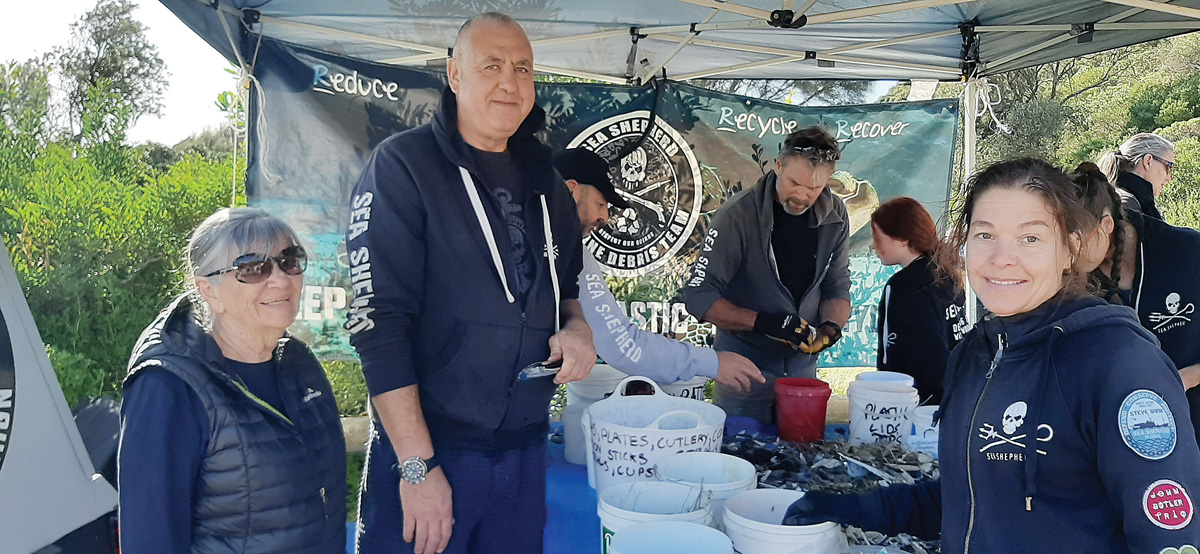
HUNDREDS of volunteers from across Mornington Peninsula and Melbourne donned gloves for a Mount Martha beach clean-up on Sunday 15 May in memory of environmentalist Trent Williams, who died on 9 April while scuba diving.
Williams was a highly respected marine biologist who had a long association with the Sea Shepherd organisation, leading its marine debris team of volunteers focussed on keeping the peninsula’s bays and waterways clear of litter.
The peninsula-based marine educator was passionate about teaching young people to care for the peninsula’s beaches and was one of the leaders of the Save Flinders Pier campaign.
Williams led scuba teams to remove rubbish from the water and seabed beneath the pier and photographed the Flinders pier structure as part of the group’s independent condition report.
His Save Flinders Pier colleagues remembered him as someone who provided energy, experience, knowledge and wisdom to the campaign to generate public interest.
His mother Nola Heaney said the beach clean had been an opportunity to remember what Williams loved best – looking after the marine environment.
“It’s wonderful to see all these people turn up, we are not only cleaning the beach and removing all this harmful litter that would otherwise end up in the bay, we are honouring Trent and what he stood for,” she said.
Sea Shepherd’s Narelle Huxley said the waste included many bottles dumped among the foreshore bushes, but the main items found were plastic food packaging and tiny nurdles, or pre-production plastic pellets, which could harm marine life.
“Nurdles are a major cause of concern to out marine environment, as marine animals eat them and they are highly persistent pollutants that can travel a long way,” she said.
“These ones we found today have probably entered the water in Melbourne, where there are factories, and made their way down here due to currents.” The nurdles did not break down in the environment and were toxic to marine life that ingested them.
Huxley said some of the waste could be recycled, including bottles, cans and some plastics, but much of it was destined for landfill.